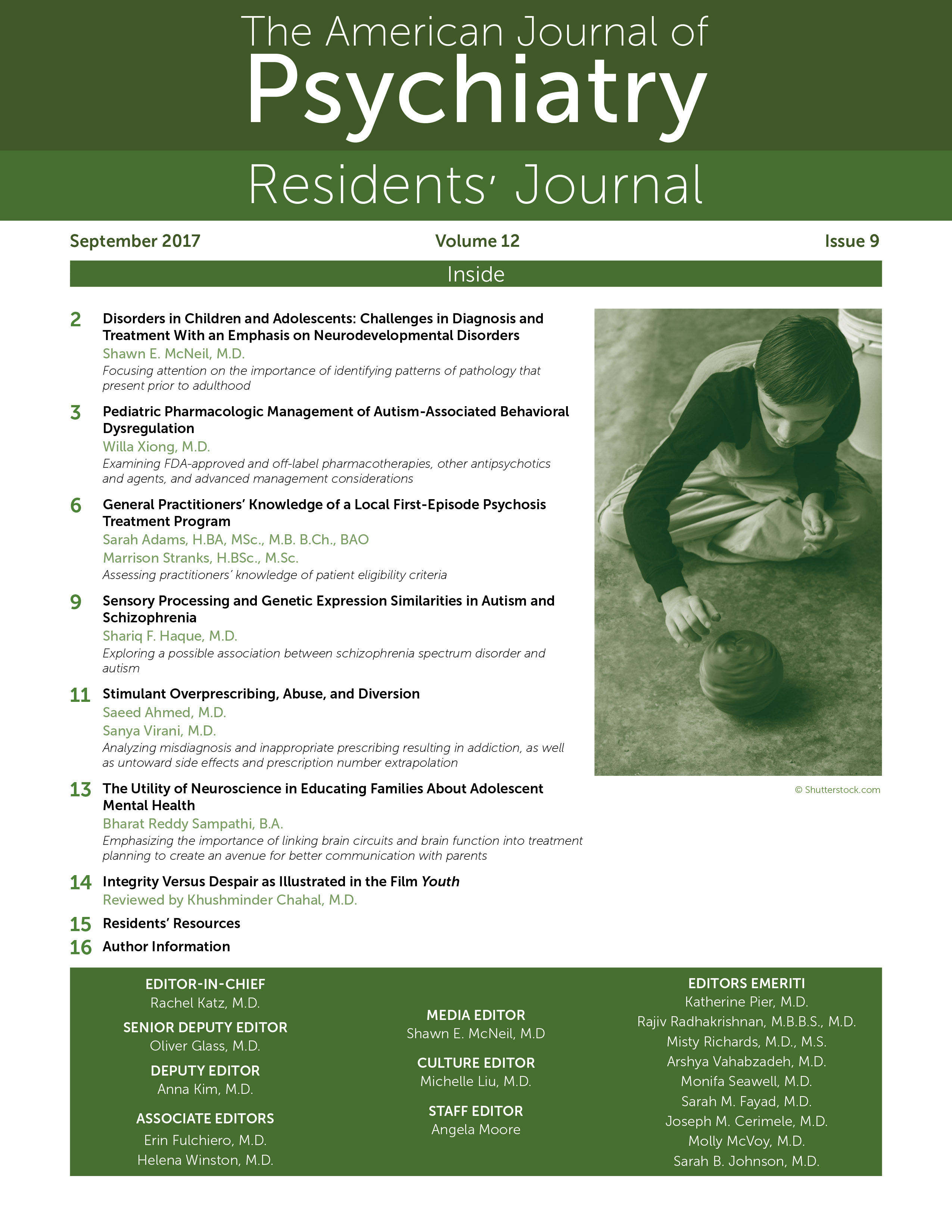The Utility of Neuroscience in Educating Families About Adolescent Mental Health
Hypothetical Case Scenario
“Patient T” is a 17-year-old, first-generation Asian-American male brought to the clinic by distraught parents concerned about an “unbelievably disrespectful” lack of energy and motivation. The parents stated, “Our son refuses to work hard in school, his grades are very poor, and he doesn’t appreciate the hardships we had to endure to provide him with the life he lives. He claims he is tired, but we think he is outright lazy!” The patient’s symptoms began 6 to 9 months prior and include loss of appetite, fatigue, irritability, social isolation, and significant weight loss. You notice that he avoids eye contact and consistently defers answering your questions to his parents. After multiple visits and a thorough analysis, you conclude that the patient suffers from major depressive disorder.
Explaining the patient’s condition to his parents proves to be difficult. They struggle to acknowledge the concept of mental health and consequently refuse the therapy and medication that their child may need. Furthermore, they ruminate on their child’s somatic symptoms and believe his current state is due to a physical ailment.
How do you convince this patient’s parents of their child’s true predicament, especially when immediate medical attention is necessary?
Introducing the concept of mental health to a family with stigma toward, or who are unfamiliar with, the topic is a challenging task that requires a longitudinal relationship. For example, mental health has been denounced for centuries in many Asian cultures; therefore, rooting your discussion in anatomical and physiological concepts may make this seemingly abstract topic more understandable (1, 2).
The National Neuroscience Curriculum Initiative (http://www.nncionline.org/), funded by the National Institute of Mental Health, was created to help psychiatrists integrate neuroscience into their psychotherapy and psychopharmacology (3). Allowing psychiatrists to link brain circuits, brain function, and more into their treatment plans has created an avenue for communication with parents who might be in denial about their child’s struggles.
At Stanford University, for example, I have observed psychiatrists using cross-sections of the adolescent brain depicting key structures and neurotransmitter pathways to demonstrate that each part of the brain is complexly intertwined. Consequently, parents are able to comprehend that what they might have labeled as “lazy and unmotivated” is actually a physical manifestation of depression due to a biological error such as the inadequate production of neurotransmitters. In order for their child to reach the academic potential they desire, they need to understand that the instigating causes must be addressed first.
This form of communication is not revolutionary, but as a medical trainee, through such cases, I have realized that mental health is a delicate art. It’s much more than a stereotypical prescription for antidepressants or a few sessions of therapy. Rather, cases should be approached in an individual manner. If a family leaves your office feeling apprehensive or, even worse, in denial, then you have created an uphill battle for both your patient and yourself. In summary, for cases that resonate with the hypothetical scenario presented above, neuroscience will serve practitioners well.
1. : Discrimination and mental health-related service use in a national study of Asian Americans. Am J Public Health 2010; 100:2410–2417 Crossref, Google Scholar
2. : Mental health issues for Asian Americans. Psychiatr Serv 1999; 50:774–780 Crossref, Google Scholar
3. : Training for the Future. Bethesda, Md, National Institute of Mental Health, 2015 Google Scholar



